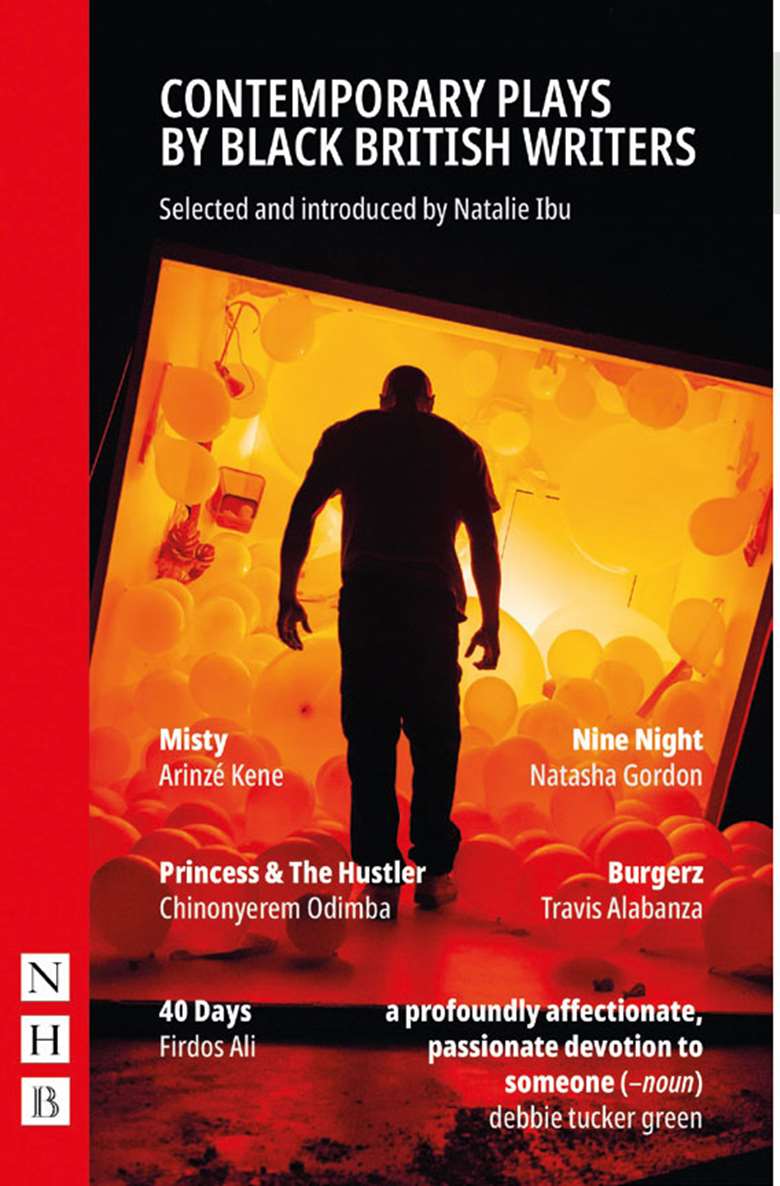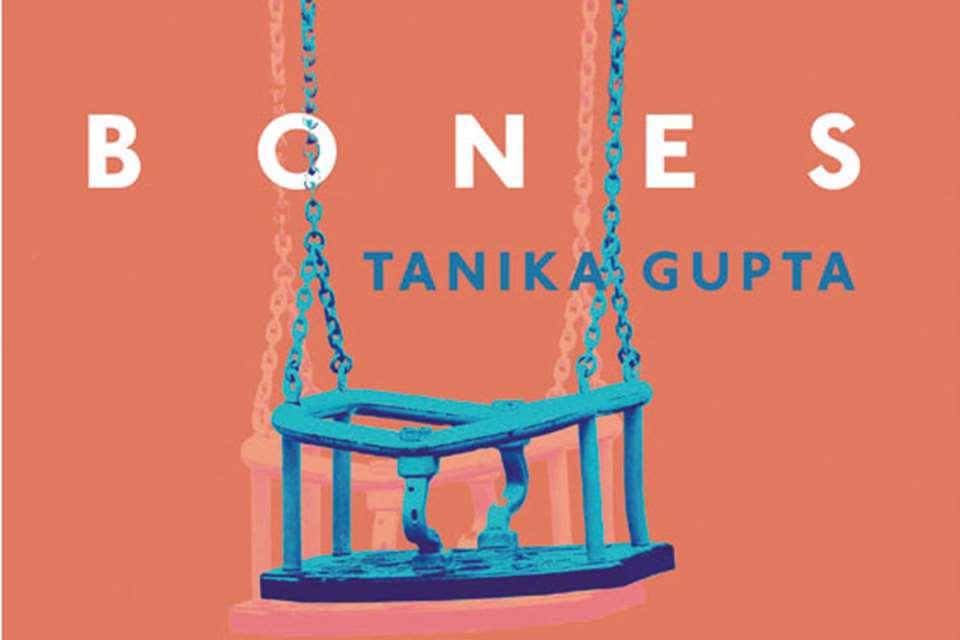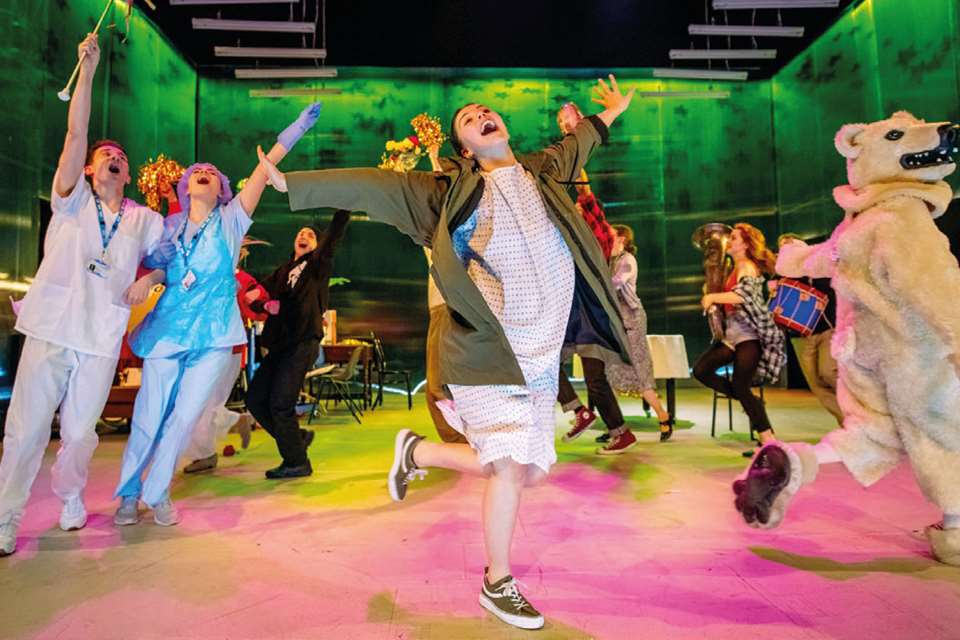Contemporary Plays By Black British Writers
Alicia Pope
Tuesday, February 1, 2022
Alicia Pope reviews Contemporary Plays By Black British Writers, selected and introduced by Natalie Ibu, published by Nick Hern Books.

Natalie Ibu is a director, producer, curator and facilitator of change who in 2020 became the artistic director and joint Chief Executive of Northern Stage in Newcastle. In her introduction to this collection Ibu discusses that for her, the descriptor ‘Black plays’ is rooted in racism, implying that ‘plays by Black artists and/or about Black people – can only speak to Blackness. It implies that white stories – by white artists about white people – are about the universal’, and as such she has rejected the label.
Ibu goes on to suggest that not all labels are bad and in fact, they can be an invitation. She refers to this collection as just that, an invitation to explore the worlds created by these Black British writers between 2010 and 2020. As Ibu says, it's impossible to create a collection of six plays that fully covers what Black British writers have to offer, but as a starting point this collection is an excellent place to begin.
Misty by Arinzé Kene
I was particularly struck by Kene's preface to Misty in which he recounts an experience of a discussion he had in which a play was described to him as a ‘Black play’ and the challenge he made to that person and their perceptions and how this led to him writing Misty. The play features a Virus (it was written pre Covid-19) and a Blood Cell as well as a variety of other characters including Arinzé. From a teaching perspective, this play has many lengthy monologues that would work well for students at KS4 and 5, these would also be excellent for ensemble work and exploring the ideas of autobiographical work and verbatim theatre.
Nine Night by Natasha Gordon
This play is a family story exploring the traditions West Indian families follow after a death, and how these traditions are upheld by families but also how they conflict with a modern British way of life. This play resonated with me; half of my family is West Indian, and this is the first play text that I've encountered where I could slot actual members of my own family into the space of the characters and hear their voices through the patois, but more specifically hear the voices of my Black British family through switching in and out of Patois. For teaching, this play has the family conflict that we are all familiar with, and raises the many questions surrounding families and how we behave in our family groups – giving plenty to discuss in the classroom.
Princess and The Hustler by Chinonyerem Odimba
At the root of this play is an all too familiar family story; a mum left to bring up two children when her husband leaves. The added drama comes when he returns, with another child that he has fathered in tow. There are lots of things to work with for classes in KS3, 4 and 5; the relationships between the children and their mum, how the children react to Wendell returning, how the children react to Lorna their new sister, how Mavis responds to Lorna, Mavis’ reaction to Wendell returning. As a theme, relationships in this play would be excellent for off text work and devising. In addition to this, the play is set in the 1960s during the Bristol bus boycott and opens much discussion on the boycotts but also how local people felt about the protest which is specifically expressed by Mavis's friend Margot.
Burgerz by Travis Alabanza
Alabanza states that he conducted a series of dinners up and down the country called ‘Tranz Talkz’ in which he ate with a range of people. Alabanza says ‘I sat around a table with strangers, bonded only by our transness, eating burger and chips and asking them questions about their lives.’ The play features only the character of Travis and a man and woman from the audience. The play tells the story of how Travis was assaulted when a burger was thrown at him, how it was witnessed, and no one offered him any help. During the play Travis cooks a burger on stage which is then thrown at him. As a monologue there is so much to work with in this play and there is lots of scope for devising in groups and creating interesting ensemble work. Something that resonated with me that I'd like to explore with students is when Travis is asked to make a box for the burger before he has made it and the question is raised: how can you pick a box for something that isn't even made yet?
40 Days by Firdos Ali
Ali gave herself 40 days to write this play and completed it in 41 days. The play explores a black British Muslim couple with a seriously ill son. It would be interesting to explore with students the intersection where the family sit living with the ‘twin devils of racism and Islamophobia’, ‘Muslim but Black’ and ‘Black but Muslim’. Further to this, exploring the idea of archetypes would work well with this play where the characters are Angry Black Woman (ABW), Angry Back Man (ABM) and White Woman (WW).
a profoundly affectionate, passionate devotion to someone (-noun) by debbie tucker green
This is a play in three parts exploring the changing relationships between characters. The Young Woman in part three is the daughter of the man and woman in part one. As a play of duologues there is a lot of scope for students to work with sections of text to explore the characters’ relationships but then to create their own work using the text as a starting point. There is also a great deal of what is not said in this play, which would be an exciting concept to work on.
I agree with Natalie Ibu that it's impossible to condense Black British writers into a single volume but as a starting point this collection is a must. If you've already started your collection, then definitely add this to it.






